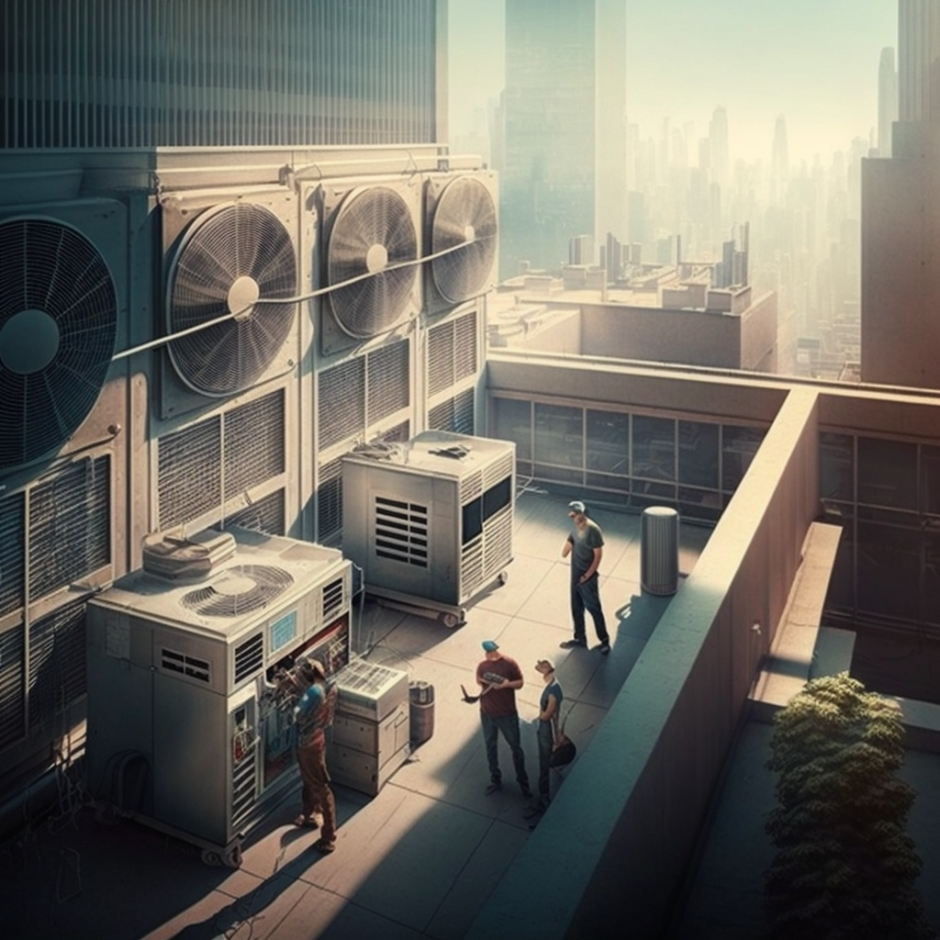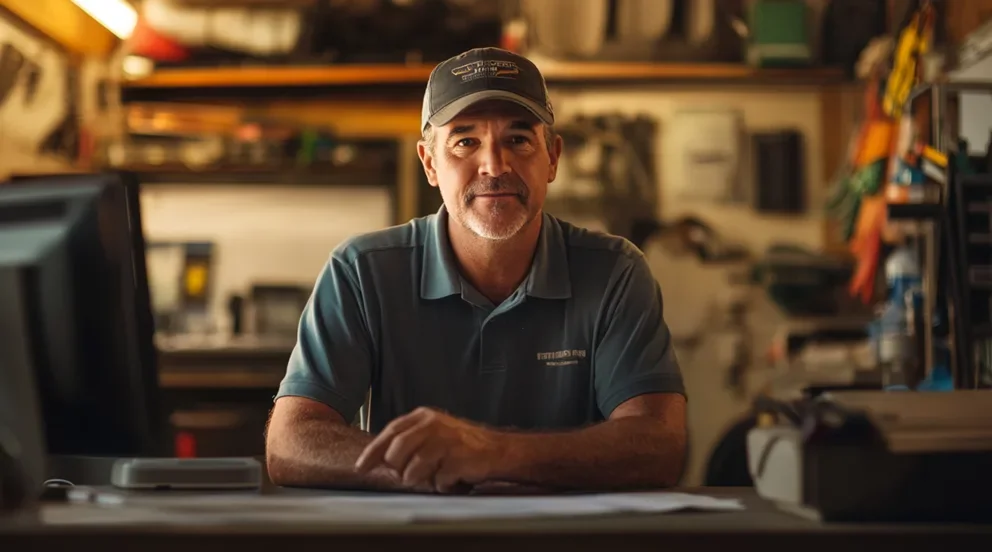What is HVAC Maintenance?
HVAC maintenance is an important part of ensuring that a building’s heating, ventilation, and air conditioning (HVAC) system is running at optimal levels. It involves regular inspections, cleaning of filters and coils to remove dirt and debris buildup, lubrication of motors and moving parts as well as testing for proper operation.
Periodic maintenance allows the HVAC system to perform at its most efficient level while reducing the risk of breakdowns or unexpected repair costs. Not only will this prevent disruption to daily operations, but it could also significantly lower energy costs over time.
Although all HVAC systems require some form of maintenance, the type and frequency varies depending on the system’s design, age and usage. The best way to ensure that your HVAC system is being properly maintained is to develop a maintenance plan tailored to your specific needs. This would involve enlisting the services of a qualified technician who can inspect you current setup and identify any potential issues or areas where preventive care should be taken.
Aside from regularly scheduled maintenance visits, there are several other practices that one can do in order to maximize efficiency:
- Inspect air filters regularly – dirty air filters block airflow which increases energy consumption
- Check for signs of water staining or leaks which could be indicative of more significant problems with ductwork
- Regularly check electrical components such as fuse boxes for any defects
- Monitor temperature settings throughout different parts of the building – variations in temperatures may indicate leakage between rooms
- Assess insulation around window frames or doors for cracks or leaks
By taking these precautions one can not only reduce their risk for repair costs but also benefit from a healthier indoor environment that has regulated humidity levels and improved air quality due to clean filters capturing airborne particles. Investing in regular HVAC maintenance ensures maximum efficiency while ultimately increasing cost savings.
What HVAC Maintenance companies do?
HVAC maintenance companies provide professional services for inspecting, cleaning, and repairing heating, ventilation, and air conditioning (HVAC) systems. They specialize in preventive maintenance, ensuring that existing systems remain up to date and functioning at peak performance levels.
Maintenance companies will assess your current system and develop a tailored plan of action for regular inspection and maintenance visits. This could include the cleaning of filters and coils to remove dirt buildup, lubrication of motors and moving parts as well as testing for proper operation. They may also recommend repairs or replacements for worn-out components such as fan belts or thermostat sensors.
In addition to keeping HVAC systems running smoothly, a qualified technician can also help identify areas where energy efficiency can be improved by providing advice on reducing energy consumption while still meeting comfort requirements. Such measures can significantly reduce monthly energy bills over time while being beneficial to the environment.
Finally, some HVAC maintenance companies offer additional services such as indoor air quality testing or ductwork inspections which are essential in detecting problems early on in order to prevent costly emergency calls down the road. Ultimately, investing in a reputable company is key to ensuring maximum performance while staying within budget.
What additional services do HVAC maintenance companies offer?
In addition to regularly scheduled maintenance and repairs, HVAC maintenance companies also offer additional services such as indoor air quality testing or ductwork inspections. Indoor air quality testing is essential in detecting any levels of particulates, carbon monoxide, or other airborne pollutants before they become a health hazard. Ductwork inspections are equally important as they can identify potential causes of energy loss such as leaks or improperly installed fixtures.
Other services may include insulation audits to assess if there are any weak points which could be allowing warm or cold air from outside the building to seep in, or sealant applications for sealing cracks in the walls. Professional technicians can also provide advice on how to increase the overall efficiency of your HVAC system by recommending upgrades such as installing programmable thermostats, maximizing insulation levels and more.
Ultimately, engaging with a reputable HVAC service provider is key to maintaining a safe and efficient environment while staying within budget over time.
What type of equipment do HVAC maintenance companies use to assess an HVAC system?
HVAC maintenance companies use a variety of specialized tools and equipment to assess an HVAC system. This includes thermometers to check for temperature discrepancies, ammeters to measure current draw on motors and compressors, and pressure gauges for examinations of pressure levels throughout the system.
Other pieces of equipment a technician may use include smoke pellets or sticks to detect air leaks in ductwork, voltage testers or amp probes to test electrical connections, or digital manometers used to measure airflow. All of these tools help technicians efficiently diagnose malfunctions so they can move forward with timely and cost-effective repairs.
In addition, some companies will also deploy infrared cameras that allow technicians to quickly detect any over-heating or cold spots within the home’s walls or ceilings – both of which could indicate underlying issues with appliances or insulation. Such cameras can also be used during installation processes, ensuring all fixtures are securely installed without any potential weak points that might lead to further complications down the road.
Furthermore, other services such as indoor air quality testing, insulation audits and sealant applications may be necessary depending on the condition of the HVAC system. All in all, it is important for homeowners to responsibly maintain their HVAC systems and regularly have them checked by professional technicians who have access to all the necessary tools discussed above. These qualified professionals are properly equipped to identify existing problems and provide advice on how best to resolve them before they become costly repairs in the future.
Where do HVAC maintenance companies generate the most revenue nowadays?
In recent years, HVAC maintenance companies have seen their largest revenue streams come from preventative maintenance services. Regularly scheduled checkups and cleanings on a customer’s system can help reduce the risk of emergency repairs due to neglected systems, thereby providing a steadier income stream for the company.
Not only that, but many technicians have also seen an increase in revenue due to the installation of energy efficient equipment. By installing newer models and components that are designed to reduce energy consumption and lower utility bills, customers are often able to see large savings over time – leading to more frequent purchases from these HVAC maintenance companies.
The use of connected technologies within these new systems has also provided an additional source of income for some of these companies. Software-as-a-service options allow technicians to provide continuous monitoring and support while remotely diagnosing potential issues quickly. This means fewer traditional service calls and more automated solutions that keep customers satisfied with a higher quality of service – both resulting in increased revenue for the provider.
Finally, HVAC maintenance companies have begun offering subscription plans as well. These can be bundled with preventative maintenance visits or used as stand-alone services for those who want an extra level of assurance during extreme temperatures or times when their system is most at risk (i.e., holidays, vacations). Subscription plans offer regular access to qualified technicians regardless of the season – resulting in added peace of mind for customers along with more stable profits for the company.
What are the risks associated with running an HVAC maintenance company?
Running an HVAC maintenance company comes with a set of risks related to the service provided. First and foremost, there is the risk of liability due to injury or damage to someone’s property from faulty repairs or installation services. To minimize such risks, HVAC maintenance companies must always make sure that their technicians are qualified and trained in all aspects of their work, as well as carrying the appropriate insurance policies.
In addition, the technology used in this field can be complex, and failure to properly maintain equipment can lead to costly breakdowns and even hazardous situations. To avoid such issues, it is important for maintenance companies to ensure they have a good system in place for tracking and replacing outdated components on a regular basis.
Another potential risk lies in pricing services competitively without compromising profit margins. As consumer needs evolve over time, pricing strategies need to be adjusted accordingly in order to remain profitable while still being attractive to customers.
Finally, proper marketing is essential when running an HVAC maintenance business. Without sufficient advertising and promotion of services, it can be difficult to build up a customer base and maximize potential profits. It is important that companies focus their efforts on creating compelling messaging that resonates with consumers while also staying up-to-date with industry trends.



